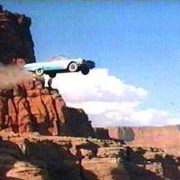The Race Towards the Year End Fiscal Cliff
After spending all of this year ignoring the fiscal disaster that the US is facing at the end of 2012, markets are finally taking off the blinders. That might explain why the S&P 500 has dropped 4.3% so far from its April 1 peak and why it may have more to come.
Remember the debt ceiling crisis of the summer of 2011? You know, the one that triggered a 25% collapse in US stock prices? The compromise that was struck required major progress in deficit reduction by November, or drastic measures would automatically kick in.
Well guess what? Zero progress has been made. None can be expected until after the November 6 election as long as both parties expect to win. That allows just eight weeks for the president and congress to repair some of the most serious fiscal damage ever to strike the country, three of which will be vacation weeks.
Add up the numbers and the potential impact on the economy is particularly grim. If congress takes no action by year end, a series of tax increases and spending cuts will automatically take effect that will squeeze the life out of the economy. Think Austerity with a capital ?A?. Think Spain with a capital ?S?. Even Federal Reserve Chairman, Ben Bernanke, a man normally disposed to making cautious, taciturn statements has described the problem as ?A massive fiscal cliff?.
Here is the forbidding breakdown in terms of their effect on annual GDP growth:
-0.2%? Expiration of unemployment benefits
-0.8%? Automatic spending cuts required by sequestration
-0.8%? Expiration of payroll tax cuts
-1.0%? Expiration of Bush tax cuts
-2.8%? Total
The big problem is that the economy doesn?t have much economic growth to give away. My own forecast for GDP for 2012 is still at 2%. But that is based on the assumption that corporate earnings would bring in 5% growth, down from last year?s torrid 15% growth. My calculator tells me that 2% -2.8% = recession. Danger! Danger! Current stock prices are not reflecting this reality.
It gets worse. The 15% of companies that have reported Q1, 2012 earnings so far have delivered a much more modest 1% growth, well below my own minimal expectations. That is with the earnings cycle front loaded with the most profitable companies in technology. It also reflects a lot of business pulled forward into Q1 from Q2 and Q3 by the warm winter. Yikes!
It?s hard to see how this ends happily for the stock market. The best case scenario would be for a lame duck president and congress, no longer worried about reelection, to cobble together a deal in December. Some sort of resuscitation of the ?grand bargain? that was on the table last summer, but suffocated in its crib by the Tea Party because it included tax increases, might work. Alternatively, if one party or the other sweeps the election, it could ram through something. But that outcome is unlikely. A divided country gets the dysfunctional government it deserves.
The headache for equity investors and risk investors in general is that even the mere discussion of the weighty matters triggers a huge ?RISK OFF? trade. Confidence withers, business and consumer spending slows, and the economic data takes a hit. That?s what happened last summer, when the markets discounted a full blown double dip recession that never actually happened. It?s a given that our representatives in congress don?t understand this.
Is This Our Fiscal Policy?





